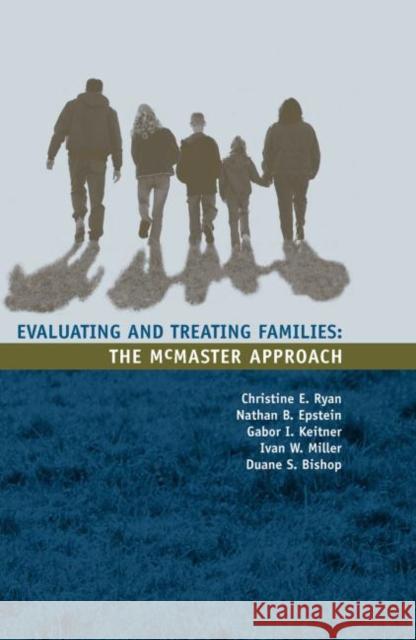Evaluating and Treating Families: The McMaster Approach » książka
Evaluating and Treating Families: The McMaster Approach
ISBN-13: 9780415951579 / Angielski / Twarda / 2005 / 354 str.
Evaluating and Treating Families: The McMaster Approach
ISBN-13: 9780415951579 / Angielski / Twarda / 2005 / 354 str.
(netto: 535,33 VAT: 5%)
Najniższa cena z 30 dni: 507,98
ok. 16-18 dni roboczych.
Darmowa dostawa!
As the field of family therapy continues to expand, novel (and often contradictory) theoretical models constantly arise to challenge the established practice. While these philosophical debates over methodology, practical techniques and theory are often highly beneficial and enlightening to the seasoned practitioner, there is a real need among therapists of all levels of experience for a comprehensive, consistent approach to family therapy. Such discussions can expand the knowledge base of all involved, but it is important that a practitioner remain clear and consistent in her approach (both theoretical and practical) when working with an actual family. As the authors of this book point out, it is all too often that a practitioner borrows bits and pieces from different therapeutic models when in session with clients, a practice that can leave the family in a chaotic state of confusion, misunderstanding and mistrust. The McMaster model presents an integrative approach to therapy, based on a clear and consistent conceptual framework designed to facilitate the seamless assessment and diagnosis of family functioning, and ultimately the successful practice of family therapy. interviewing, assessment, diagnosis and the formulation of an effective treatment plan. And yet it is flexible enough to be used in a wide variety of clinical, research and training situations. Nathan Epstein - the man recognized as the main developer of the McMaster model - and his co-authors have, in this comprehensive compendium, gathered together five lifetimes worth of experience in order to present this easily accessible conception of family therapy. This comprehensive text is organized into two parts, the first of which presents an overview of the history, development, and theory of the model, and its specific applications to treatment, training, assessment, and research. Part II includes the instruments and assessment tools originally developed by the authors during their extensive clinical and research experience. Clinical case examples drawn from over four decades of family therapy work enrich the text, and an entire chapter is devoted to the authors' own research findings, current research plans, and new directions in their work.











